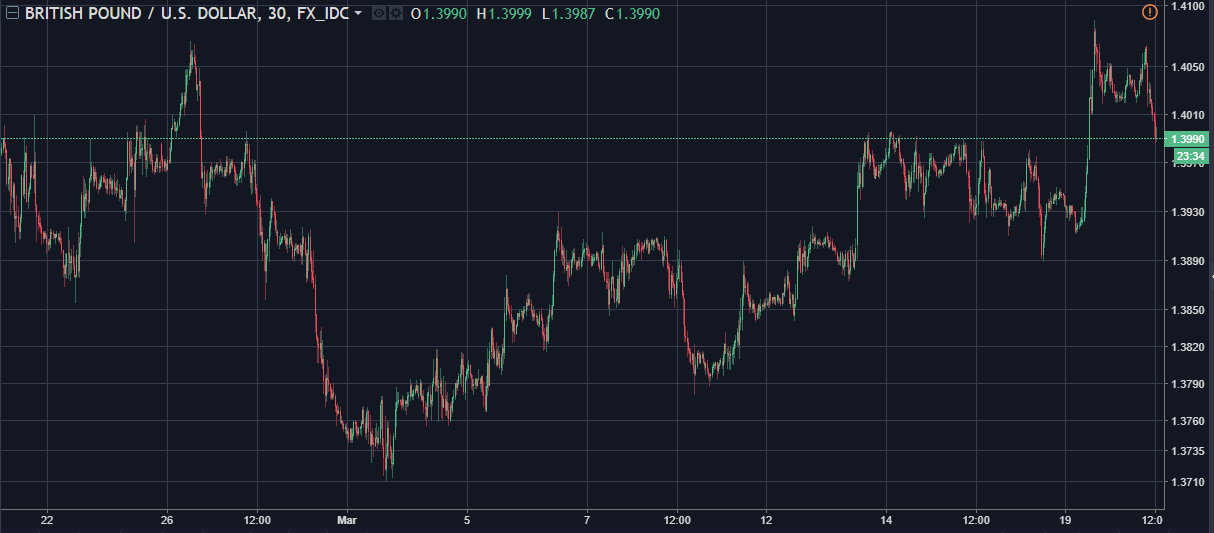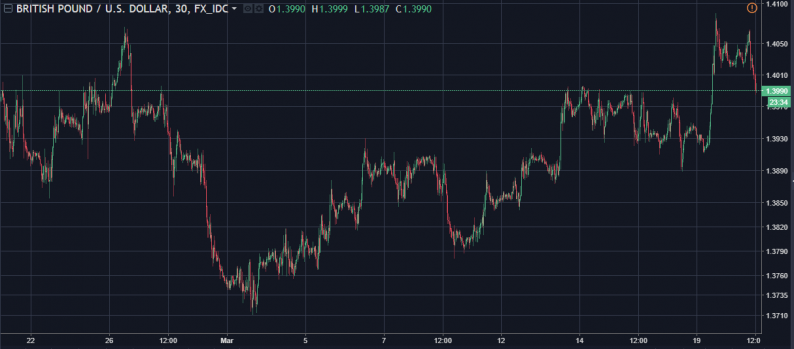The pound erased gains made earlier today after the Office of National Statistics (ONS) released February’s inflation data. According to the organization, inflation eased to 2.7% in February from a high of 3.1% in December 2017. In January, inflation was at 3%.
The inflation data missed the analysts’ estimates of 2.8%. The drop was fueled by the sudden drop in the petroleum products. The price of petrol dropped by 0.2% while that of diesel dropped by 0.1%. On the other hand, food prices rose by 0.1% between January and February compared with a 0.8% rise a year ago. Last year’s decline was affected by the shortage of vegetables after the South Mediterranean countries were hit by bad weather.

The inflation numbers read today led to the easing of the pound which had risen by 0.32% before the data was released. It was trading at 1.4066. The decline happened because the inflation data removed the pressure facing Governor Mark Carney and the Bank of England on raising interest rates.
For starters, the role of the Central Bank is to protect the public from inflation and to guarantee the safety of the financial institutions. Without this role, the public would not have ways for protecting themselves in times of increased inflation.
To guard people against this, the bank can use multiple tools with the main one being interest rates. Low interest rates tend to increase the use of money as people move to borrow. They borrow to pay for products like cars, houses, and other personal needs. This often creates more demand for products which could lead to significant negatives for the economy.
To limit the spending, the central banks use tools like interest rates. Higher interest rates act as a hindrance for people to control their spending.
Since the financial crisis, central banks in the developed world reduced interest rates and implemented the policy of quantitative easing.
Right now, they may raise interest rates in what is known as normalization. In other words, they want to bring rates to traditional levels.











Leave A Comment